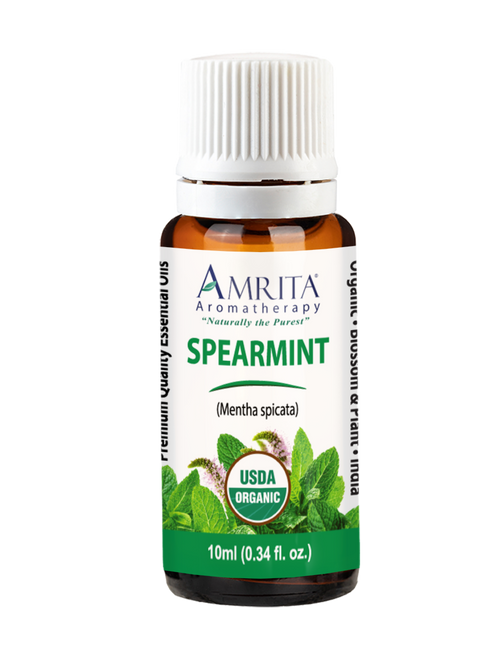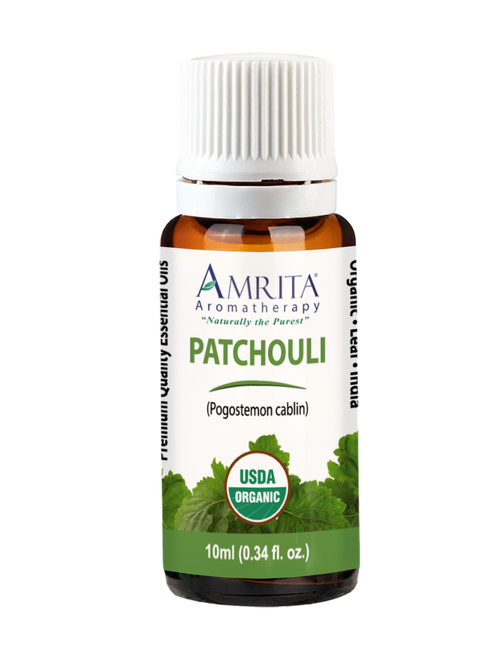- Other Names
- Khella, Toothpick Plant, and Bishop's Weed
- Farming Method
- Certified Organic
- Plant Part
- Seed
- Country of Origin
- Morocco
- Application Method
- Diffusion, Inhalation, and Topical
- Scientific Name
- Ammi visnaga
- Extraction Method
- Steam Distilled
Organic Ammi Visnaga Essential Oil is a prized possession for natural therapy enthusiasts. This precious oil is a must-have in any therapeutic collection due to its impressive effectiveness in treating asthma and allergies when steam-inhaled.* Traditionally used for vitiligo, psoriasis, and other health concerns, Ammi Visnaga contains linalool and 2-methylbutyl-2-methylbutyr that relax and widen blood vessels, promoting healthy circulation, and easing heart contraction.* Its antispasmodic effects make it a potent tool in treating angina while also increasing "good cholesterol" levels. This miraculous oil also contains antibacterial properties to fight bacteria, viruses, and fungi.* This is why Ammi Visnaga is an excellent choice for kidney stones.* Take your health and aromatherapy routine to the next level with Ammi Visnaga Essential Oil!
About the Plant:
Ammi Visnaga, or Khella, is an annual or biennial flowering plant from the Apiaceae Family — sharing characteristics with Carrot Seed (Daucus carota), Sweet Fennel (Foeniculum dulce), and Parsley (Petroselinum cripsum) to name a few. It has a slender stalk with delicate threadlike leaves topped with a shapely canopy of tiny white flowers. Like a carrot, it has a taproot that extends beneath the soil. Plants in this family are usually herbs with leaves that alternate with sheathing bases and the internodes are usually hollow. This plant is self-fertile (self-pollinating) having both male and female organs and is pollinated by insects.
Where It Grows:
Ammi Visnaga, also known as Khella, is native to Europe, Asia, and North Africa. Khella is an annual plant found primarily in Egypt, other regions of the Middle East, and the Mediterranean. But it can be found throughout the world as an introduced species.
Amrita Aromatherapy imports Ammi Visnaga Essential Oil from a source in Morocco that distills the finest quality Ammi Visnaga oil for aromatherapy purposes. Ammi Visnaga Essential Oil of this quality is rarely found.
Traditional Uses and Lore:
Ammi Visnaga's therapeutic benefits have traditionally been utilized within the Mediterranean region. It is one of the oldest herbs originating from the Nile Delta. Ancient Egyptians left behind manuscripts describing its use for treating vitiligo, urinary calculi, and bladder stones.* People suffering from allergic bronchial asthma and emphysema have been given Ammi Visnaga to inhale, bringing their symptoms under control.* Other respiratory conditions Ammi Visnaga combats are bronchitis, cough, and whooping cough.*
Dioscorides (40-90 AD) who was a Greek physician, pharmacologist and botanist used the word Ammi to describe the plant. Ammi is derived from the Greek work Ammos meaning “sand”; Visnaga is a general term and it is believed that it came from the term “bis actum” which means doubly pointed.
Today, you can still find the dried umbels of Ammi Visnaga, or Khella, in Middle Eastern and Far Eastern markets. The dried stems of the plant are used as toothpicks, hence the names “Toothpick plant and Toothpick Ammi”. It is also said to keep teeth and gums healthy.* It has also been traditionally given in medicines to relieve the intense pain of kidney stones through two functions: relaxing the surrounding organs and dissolving the stones themselves.* Other uses include treatment of diabetes, colic and abdominal cramps, liver and gallbladder disorders, and fluid retention.*
Other Facts:
-
-
- Scent: Grassy-Herbal, Camphoraceous, Earthy, and Mulch-Like Aroma
- Fragrance Note: Middle Note
- Composition: Methylbutyl Isobutyrate, 2-Methylbutyl-2-Methylbutyr, Methylbutyl Isovalerate, and Linalool
- Family: Apiaceae Family
-
*These statements have not been evaluated by the Food and Drug Administration. These products are not intended to diagnose, treat, cure, or prevent any disease.
- USDA Certified Organic
- Eases Muscle Spasms
- Relaxes and Soothes Airways
- Combats Symptoms of Allergies
- Click here to read Amrita's blog: All About Ammi Visnaga Essential Oil
- Check out the tabs below to learn more about Ammi Visnaga
Please note: Massage and Aromatic Bath Applications are not recommended with Ammi Visnaga. See safety precautions below for more details on the concerns with using Ammi Visnaga. Ammi Visnaga is expensive, so it is more cost-effective to dilute it with other suitable Essential Oils. This will also improve the aroma. Ammi Visnaga is also very photosensitive — please do not have sun exposure, UV, or infrared treatment within 8 hours of topical application.
Topical Application (for use on the skin):
-
- Targeted Topical Application: Make a dilution blend of up to 2-4% in any carrier oil (10-20 drops per tablespoon of carrier oil). Apply a small portion of this blend, do not exceed 10 drops per application per day, to affected areas for the following:
- Circulatory System:
-
- Promotes Healthy Circulation
- Relaxes Muscle Spasms
- Helps Widen Blood Vessels
- Digestive System:
-
- Helps Relieve Kidney Stones
- Supports Balance of Diabetes
- Reduces Fluid Retention
- Respiratory System:
-
- Suppress Bronchial Spasms
- Eases Symptoms of Asthma and Bronchitis
- Dilates Bronchial Tubes
- Blocks the Allergic Response
- Targeted Topical Application: Make a dilution blend of up to 2-4% in any carrier oil (10-20 drops per tablespoon of carrier oil). Apply a small portion of this blend, do not exceed 10 drops per application per day, to affected areas for the following:
Diffusion / Inhalation (add a few drops to a nebulizer or nasal diffuser):
|
|
-------------------------------------------------------------------------------------------------------------------------------------------------------------------
Blends Well With:
-------------------------------------------------------------------------------------------------------------------------------------------------------------------
Safety Precautions:
-
- Ammi Visnaga is so potent that this herb must be handled with caution.*
- If used topically in excess, it can be toxic.* It can cause liver damage.*
- Ammi Visnaga has coumarin (a blood thinner) in it.
- Be extra cautious using Ammi Visnaga topically if you are taking blood thinners.*
- Ammi Visnaga is extremely photosensitive.*
- After application to the skin: stay away from direct sunlight, UV light, or infrared light for at least eight hours.*
- Please note: if Ammi Visnaga is used in inhalation only, these above warnings do not apply.*
- Ammi Visnaga is so potent that this herb must be handled with caution.*
General Safety Precautions:
-
- Use Essential Oils only in diluted form on the skin and never internally.
- Always be careful when using Essential Oils with children.
- Give them only low doses, or better, consult a qualified aromatherapy expert before using.
- Also, use Essential Oils with care and only under the proper guidance of an expert while pregnant or if you have liver damage, epilepsy, cancer, or other serious health problems.
*These statements have not been evaluated by the Food and Drug Administration. These products are not intended to diagnose, treat, cure, or prevent any disease.
Ammi Visnaga is medicinal, plain and simple. It is a highly prized ingredient in folk medicine to treat difficult problems such as asthma, bronchitis, and kidney stones.* Due to its unusual scent, you won't find any shampoos, body butters, or room sprays bearing its name.
Its aroma is known as a strong herbal; thus, it makes people think about sweet, earthy, and woody aromas. As is sometimes the case with highly effective substances, its odor can sometimes be unpleasant for people. Many people prefer to blend Ammi Visnaga Essential Oil with other Essential Oils in order to mask the overpowering scent. Usually you will find Ammi Visnaga blended with Eucalyptus Radiata, Hyssop, and Lavender for asthma; you will usually find it blended with Moroccan Chamomile or German Chamomile for allergies.
Ammi Visnaga Essential Oil is in many respiratory blends because it has been found to be a very powerful bronchial antispasmodic. This means it relaxes bronchial spasms while also dilating the bronchial tubes. When steam-inhaled, Ammi Visnaga Essential Oil may help to bring asthma attacks under control and relieve the symptoms of bronchitis by suppressing bronchial spasms. It's so effective in combating symptoms of asthma that scientists actually created a synthesized version of one of Ammi Visnaga's major compounds (Cromolyn). Khellin is another naturally occurring compound, found in certain prescription asthma medications.
Ammi Visnaga is also an antihistamine, which means it blocks the allergic response. It also can be used to control allergic reactions, because it prevents the release of histamines. This miraculous oil also contains antibacterial properties to fight bacteria, viruses, and fungi.* This is why Ammi Visnaga is an excellent choice for urinary tract infections and kidney stones.*
Lastly, Ammi Visnaga contains linalool and methylbutyr that relax and widen blood vessels, promoting healthy circulation, and easing heart contraction.* Its antispasmodic effects make it a potent tool in treating angina while also increasing "good cholesterol" levels. Take your health and aromatherapy routine to the next level with Ammi Visnaga Essential Oil!
The following is a list of conditions which Ammi Visnaga Essential Oil addresses by category:
|
|
|
*These statements have not been evaluated by the Food and Drug Administration. These products are not intended to diagnose, treat, cure, or prevent any disease.
Bottles are filled by volume. Some bottle sizes may not be filled to the top, but do contain the volume of oil specified.
|
Click the links below to view GC Analysis:
|
Click the links below to view CoA Analysis:
|
|
Click the link below to view Safety Data Sheet (SDS): |
|














